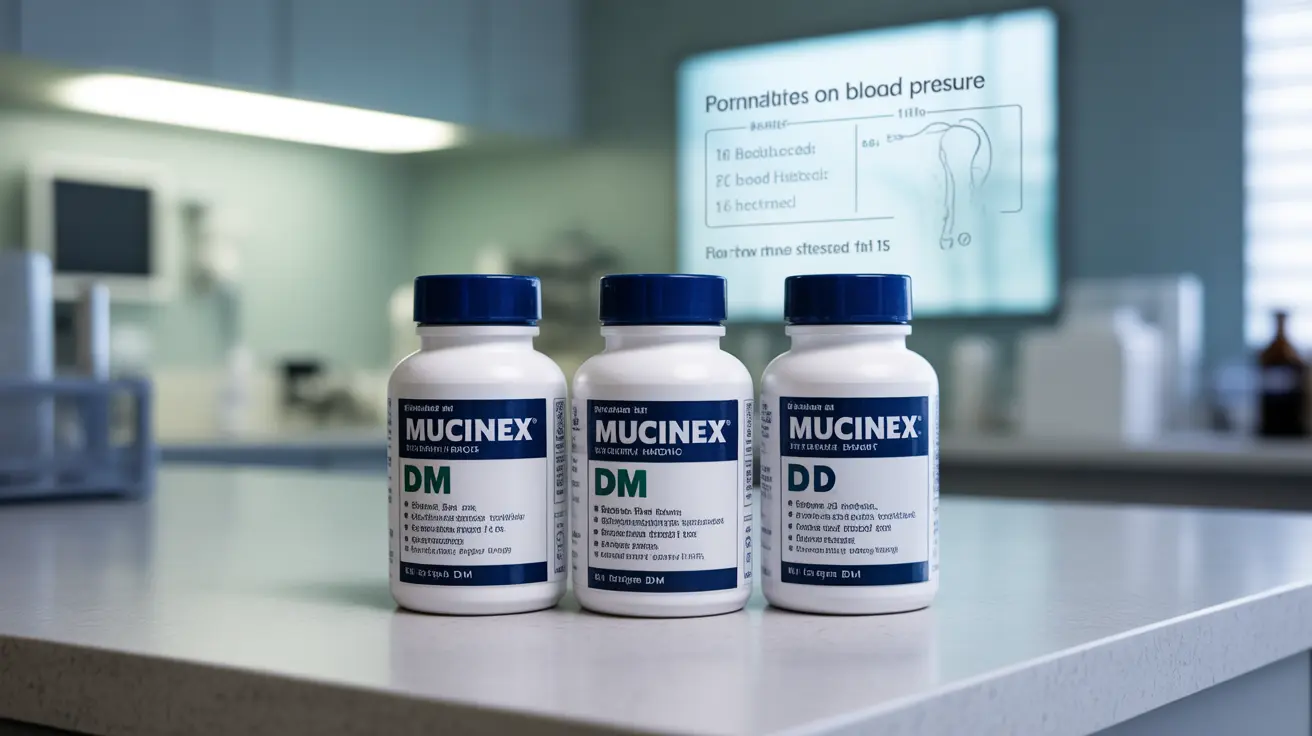When dealing with congestion and cold symptoms, many people turn to Mucinex products for relief. However, concerns about how these medications might affect blood pressure are common and important to address. Understanding the relationship between Mucinex products and blood pressure can help you make informed decisions about your health.
Different Mucinex formulations contain varying active ingredients, and their effects on blood pressure can differ significantly. This comprehensive guide will explore how various Mucinex products might impact your blood pressure and what precautions you should take.
Understanding Different Mucinex Formulations
Mucinex comes in several formulations, each with distinct ingredients and potential effects on blood pressure:
- Regular Mucinex (Guaifenesin only)
- Mucinex DM (Guaifenesin and Dextromethorphan)
- Mucinex D (Guaifenesin and Pseudoephedrine)
Effects on Blood Pressure by Product Type
Regular Mucinex
Plain Mucinex, containing only guaifenesin as its active ingredient, generally doesn't have a significant impact on blood pressure. This expectorant helps thin and loosen mucus without affecting cardiovascular function.
Mucinex DM
Mucinex DM combines guaifenesin with dextromethorphan, a cough suppressant. While this formulation typically has minimal effects on blood pressure, some users may experience slight variations in heart rate or blood pressure, particularly at higher doses.
Mucinex D
Mucinex D contains pseudoephedrine, a decongestant known to potentially raise blood pressure. This formulation requires the most caution for individuals with cardiovascular concerns.
Safety Considerations and Precautions
Before taking any Mucinex product, consider these important safety measures:
- Consult your healthcare provider if you have high blood pressure
- Monitor your blood pressure while taking these medications
- Start with the lowest effective dose
- Choose formulations without decongestants if you have cardiovascular concerns
When to Seek Medical Attention
Watch for these warning signs while taking Mucinex products:
- Severe headaches
- Chest pain or irregular heartbeat
- Significant blood pressure changes
- Unusual dizziness or anxiety
Frequently Asked Questions
Does Mucinex DM raise blood pressure or affect heart rate?
Mucinex DM typically has minimal effects on blood pressure and heart rate. However, some individuals might experience slight variations, particularly at higher doses or with prolonged use. Monitor your response and consult your healthcare provider if concerned.
What are the common side effects of Mucinex DM and when should I be concerned?
Common side effects include mild dizziness, drowsiness, and mild stomach upset. Seek immediate medical attention if you experience severe dizziness, rapid heartbeat, chest pain, or significant changes in blood pressure.
Is plain Mucinex safe for people with high blood pressure or heart conditions?
Regular Mucinex (guaifenesin only) is generally considered safe for people with high blood pressure or heart conditions. However, always consult your healthcare provider before starting any new medication.
How does Mucinex DM differ from Mucinex D in terms of blood pressure effects?
Mucinex DM typically has minimal impact on blood pressure, while Mucinex D contains pseudoephedrine, which can significantly raise blood pressure. People with hypertension should be particularly cautious with Mucinex D.
What should I do if I experience dizziness or severe side effects while taking Mucinex DM?
If you experience severe side effects, stop taking the medication immediately and contact your healthcare provider. For serious symptoms like chest pain or severe dizziness, seek emergency medical attention.
Always consult with your healthcare provider before starting any new medication, especially if you have underlying health conditions or concerns about blood pressure effects.




